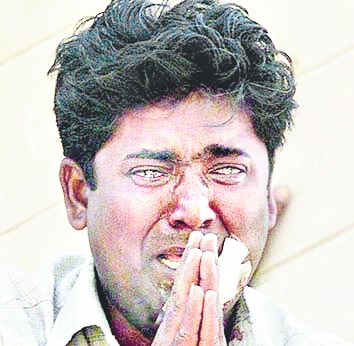Search for the truth

♦ GUJARAT FILES: ANATOMY OF A COVER UP (Thomson Press, Rs 295) by Rana Ayyub is an extensive exploration of the 2002 pogrom in the state. The author went undercover for eight months in Gujarat as Maithili Tyagi, a filmmaker from the American Film Institute. To investigate the riots, she met top bureaucrats and police officers who held pivotal positions in Gujarat between 2001 and 2010. Ayyub also writes about extrajudicial killings and the murder of Haren Pandya. The book throws light on the extent to which the State and its officials were complicit in crimes against humanity. While talking to Ayyub, a former chief of the anti-terrorism squad, Rajan Priyadarshi, claimed that Amit Shah had told him, "Achcha aapne ek bande [Sohrabuddin Sheikh] ko arrest kiya hai na, jo abhi aaya ATS mein, usko maar daalne ka hai." ("You have arrested a person who is now with the ATS, he needs to be killed.") Sheikh's alleged crimes and subsequent death in an encounter are still widely debated.
Ayyub highlights a number of interesting points, particularly the manner in which Narendra Modi, who was the chief minister at the time, was portrayed as a helpless leader who had no choice but to watch a massacre take place. When asked if Modi gave in to the wishes of the Rashtriya Swayamsevak Sangh, the former Ahmedabad police commissioner, K. Chakravarthy, said, "In his position he could not have done anything else, especially if you have been groomed by an organization which was involved [in the riots]."
♦ SHAHENSHAH: THE LIFE OF AURANGZEB (Harper Perennial, Rs 599) by N.S. Inamdar has been translated from Marathi by Vikrant Pande, and talks about the Mughal ruler who is often portrayed as a tyrant and zealot in historical texts. Aurangzeb waged countless wars, and spent nearly 25 years of his life in tents and camps along with thousands of soldiers. In this book, Inamdar writes about the hardships the emperor endured. The account is well-researched, and contains interesting discussions on political alliances between the Marathas and the Rajputs in the 17th century. Inamdar believes that Aurangzeb acted in accordance with the demands of his time, and strives to dispel the prevailing notions about the emperor. Historians say that Aurangzeb was a power-hungry king who imprisoned his own father. But it must be remembered that his father and grandfather had also attempted the same.
♦ THE PANAMA PAPERS: BREAKING THE STORY OF HOW THE RICH & POWERFUL HIDE THEIR MONEY (Oneworld, Rs 499) by Bastian Obermayer and Frederik Obermaier reveals how the privileged classes use shell companies to protect their illicit wealth. Millions of dollars are paid as advisory fees and shares worth billions are exchanged regularly. This is how prime ministers, dictators and other influential people build their fortunes. The authors, both of whom are journalists, talk about receiving secret information from an anonymous source, and how it managed to shake the influential classes.

♦ I'M GOING TO RUIN THEIR LIVES: INSIDE PUTIN'S WAR ON RUSSIA'S OPPOSITION (Oneworld, Rs 499) by Marc Bennetts is a commentary on the period in Russia after 2012. The start of Vladimir Putin's third presidential term was greeted with mass protests and violent clashes between the Opposition and the police. "They ruined my big day, now I'm going to ruin their lives," Putin is alleged to have said. Since then, Opposition leaders have either been killed or placed under house arrest. Bennetts records his conversations with Opposition leaders as well as highly placed sources in the Kremlin to present the dynamics of Russian politics. The book will help readers gain a clear idea about Russian politics after the disintegration of the Soviet Union.











